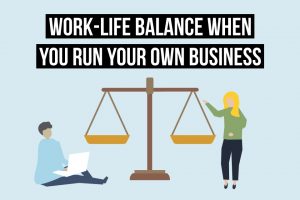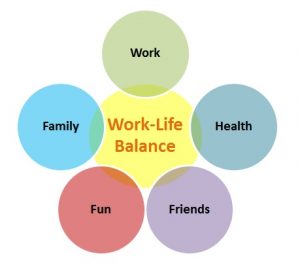- HR Business Partner
- +92 305 2903322
- info@globalhrmservices.com
Why a healthy work-life balance is a win-win
 Feeling overwhelmed at work or at home? Take a breather and read these tips on how to achieve work-life balance.
Feeling overwhelmed at work or at home? Take a breather and read these tips on how to achieve work-life balance.
Work-life Balance Shouldn’t be a Far-Fetched Dream
Juggling career, family, and a social life can be challenging for workers and employers alike.
You might have heard people talk about the concept of “work-life balance” and wondered how on earth anyone ever achieves it.
There are so many demands from every facet of your life. And if you want to give everything 100%, it might seem inevitable that something will suffer.
Part of the reason that work-life balance seems so elusive might be that it changes over time, depending on your individual needs. When you’re young and single, you may wish to focus more time on advancing your career and enjoying time with friends. For some people, that changes when you get married, when you have children, and as your children age.
Finding the right balance between home and career is very difficult. This is especially true for mothers, who usually take on more than their share of household chores and childcare responsibilities, even in families that strive for a more egalitarian distribution of work.
Working Excessive Hours Can Lead to a Number of Health Problems
Finding a happy harmony between work and life might feel impossible, but it is very important — not just for workers, but for the companies they work for, too.
Why a Healthy Work-Life Balance Is a Win-Win
Experts say that finding a healthy balance between work and life is important for many reasons. For one thing, working excessive hours can lead to a number of health problems:
- It increases your risk for heart attack and stroke
- It can make you more anxious and depressed
- It might even make you less One study found that people who work long hours get themselves into a tunnel vision-like state, which cases their IQ’s to drop by an average of 13 points.
And it’s not just the employees’ well-being that gets damaged by too much work. The organization can suffer as well. Studies show that employees who have a healthy work-life balance performs better at work. Productivity increases, attitudes toward work improve, and retention goes up. So, promoting work-life balance benefits both the company and the people who work for it.

Tips on How to Achieve Work-Life Balance
This is a practical guide for both employers who want to help their employees balance career and home life, and workers who want to feel a little saner in their commitments.
For Employers
Here are some steps you can take to prevent burnout and help your staff find a bit of harmony in their lives:
Don’t overwork yourself
Set an example for your employees by committing to a 40 hour work week for yourself. Your actions will set the tone for your company culture. Also, keep track of employees’ vacation time, and remind them to use it. Allow employees to work flexible hours and/or telecommute.
Encourage short breaks throughout the day
The human body was not designed to sit at a desk for 8 uninterrupted hours. In fact, this can cause a wide variety of health problems. So remind your employees to step away from their desks, get a cup of coffee, chat with a coworker, take a walk around the building, or whatever else they can do to get a physical and mental break for a few minutes at a time.
Offer unpaid time-off for life events
Hopefully, you offer some amount of paid time off in your benefits package. But when employees have used all that up, they might still experience some type of emergency or unplanned event that requires them to be away from work. Make sure that they know that if they really need to be away for an important event in their lives, they can take unpaid time off.
If possible, offer childcare and exercise benefits. Onsite childcare and exercise facilities can go a long way toward reducing commutes, stress, and that dreaded morning rush.
For Employees
We’d all love to work in a place where the boss encourages you to work fewer hours and spend time with your family. But that’s not always the case. If you need a little help balancing your career and home life, these tips are for you:
Negotiate with your boss
Most of us can’t just say, “Sorry, I can’t take on another project,” without risking our jobs. But if your employer keeps throwing assignments and meetings your way and doesn’t seem to recognize how overburdened you are, you need to speak up. There is a right way to do this without sounding like you’re shirking your responsibilities. Simply point out the reality of what’s being asked of you. “OK, I can handle that assignment. Right now, you already have me working on X. If I take on this new assignment, I’ll have to walk away from X for a while. Which of these projects would you like me to work on first?”
Schedule time-off
If you get paid time off, be sure to use it. Scheduling your vacations sets a boundary, and lets everyone in the office know that they shouldn’t expect to see you during that time.
Talk to your partner
This is especially important for women and parents of small children. If you are taking on the brunt of the “homework,” reach out to your partner and ask for help. Point out how many hours you are putting in, and ask what they can do to ease your burden.
Let go of expectations
The truth is, nobody can truly “have it all.” There is simply not enough time in the week to work full time, exercise, keep a perfect house, raise perfect children, attend every school function, and maintain a social life. Choose to be OK with not being able to do everything.
Maybe your house just has to be messy. Maybe you can’t make happy hour. That’s OK. Nobody can do everything.
The balancing act between work and home life can feel overwhelming at times. It’s crucial for workers to do what they can to avoid overworking themselves and striking a healthy balance between home and career.
And it’s equally important for employers to promote a healthy work-life balance for their employees. We hope that these tips help you to achieve some balance in your lives





